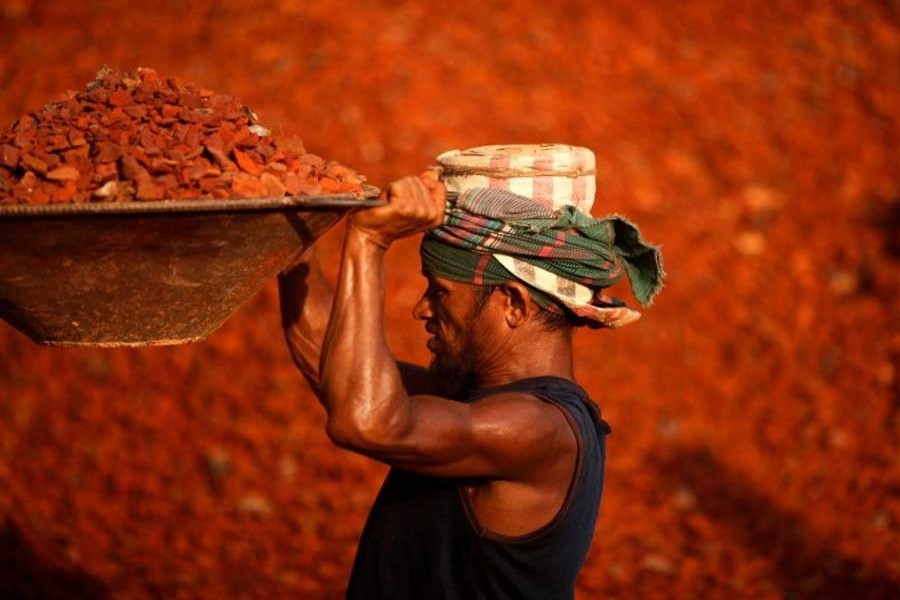It is said that coronavirus spares none taking its toll on all -- irrespective of social position, religion, colour of skin and so on. Somewhat ironically, however, measures to contain it in countries like ours tend to affect millions who work or run petty businesses in the informal sector. Though not officially locked down, the entire country is now cut off from within and beyond, and having to live indoors these low income people are left with no livelihood means to pull themselves through. Clearly, it is the growing concern over contact transmission of the virus that has forced things to happen as they are.
Rickshaws, manually driven vans, motorised auto-rickshaws and scores of indigenous and makeshift vehicles are rarely seen on the streets. Street vendors selling all conceivable varieties of wares are also not visible. Day labourers, construction workers and innumerable others most of whom live from hand to mouth are either shut indoors with no income or have left for village homes where no respite awaits them but the intense agony of looming uncertainty. In the absence of authentic data, it is difficult to say how much of the total population they constitute. The number, even in a conservative estimate, is sure to be mammoth, and thinking of providing them some form of protection through extended social safety net or other supportive programmes needs well thought out plans. According to the latest survey of Bangladesh Bureau of Statistics, more than 60 million people make up the country's labour force working in more than 100 formal and informal sectors. Those in the informal segment are believed to be well over 25 million.
The Prime Minster in her address to the nation on March 25 has announced a Tk 50.0 billion stimulus package in order to pay salaries and wages to the employees and workers of the country's export-oriented industries. The stimulus package will bring some relief to the workers in RMG and other export-oriented industries. However, given the uncertainty of those in the informal sector, and their numbers far exceeding those of the organised sectors such as the export-oriented ones, a greater fund needs to be mobilised, according to experts, who fear in the event of the pandemic lingering for a couple of months, serious food issues may arise. But the government's food stock is said to be enough to see the people through a full year. Even so, it will be crucial to extend coverage of facilities such as OMS, cash transfer, VGD and VGF programmes in both urban and rural areas.
True, leaving the onus on the government alone makes little sense in such a gigantic task. While the government has to device its plans by effectively expanding the existing safety net which will need arranging funds and related resources, multi-sectoral collaboration in the form of immediate intervention is a must in order that things do not turn for the worse. Teaming up with NGOs, government and non-government financial institutions, and corporate business houses at this dire hour can help rescue the situation.


